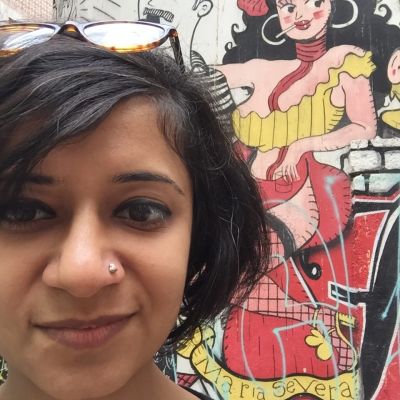internet
फोटोग्राफ़र लॉरा डे रेनल ऐसे संगठनों की कोशिशों को कैमरे में क़ैद कर रही हैं, जो लोगों को पहली बार…
अगर इन्टरनेट न होता, तो मुझे लगता है कि मैं खुद में बहुत ही असुरक्षित महसूस करती। इस बात से…
Leaving Michael’s apartment one Tuesday morning, I smiled and said, “Have a good class today.” That may not sound like…
The Internet is as public a space as any other – fraught with its own set of complexities – and the stigmas and moral judgments that plague our immediate physical environment often permeate into it, whether subconsciously or not.
Our desire to connect is perhaps one of the human aspirations that both Sexuality and the Internet serve. And with the Internet we now have new ways, unthought of even twenty years ago, of connecting with each other, and even at times with ourselves, finding aspects of our selves that we did not know existed.
It is rather edifying to find information that one can relate to through a solitary rectangular box. Over time, this solitary box somehow stuck around while everything around it changed as the world moved even further into a digital era.
That offline patriarchal norms are travelling online – lock, stock and barrel. Digital technologies may appear to be gender-neutral, but floating below their waters is the whole kit and caboodle of patriarchy.
Looking back at this piece, written seven years ago, the core issues that I identified then remain significant and relevant….
One summer afternoon some moons ago, a man at work assigned to help me move numbers on an excel sheet…
“My brother does not want me to buy a mobile phone. He says that there are already three phones in…
But TikTok is giving young people – particularly women – in South Asia a new avenue to showcase their talents. While for the majority of women using the app their fame is exclusive to TikTok, an increasing number are able to use it to get paid work. And for many, the platform represents a scarce opportunity for bodily autonomy, and a chance to carve out space as a performer in the face of film and fashion industries that shut them out.
To claim the public then in arbitrary, messy and oppositional ways, whether on the streets or online is to challenge the neoliberal impulse which is located in the creation of order. To create place, to stake claim, thwarts the desires for the sanitised neoliberal city and is a politics.
To claim the public then in arbitrary, messy and oppositional ways, whether on the streets or online is to challenge the neoliberal impulse which is located in the creation of order. To create place, to stake claim, thwarts the desires for the sanitised neoliberal city and is a politics.
Shruti Arora is a feminist trainer and researcher in the field of Gender and Sexuality. In this interview, she shares her insights on collective practices of building safe and sexuality-affirming spaces for young people, in friendships and community, digital and healthcare settings.
There may already be another organisation in the community to share resources with but for community-led initiatives, a shared perspective on Safe, Inclusive, Sexuality-Affirming (SISA) spaces is also important. Sometimes when the shared perspective is not there, that becomes a challenge.














